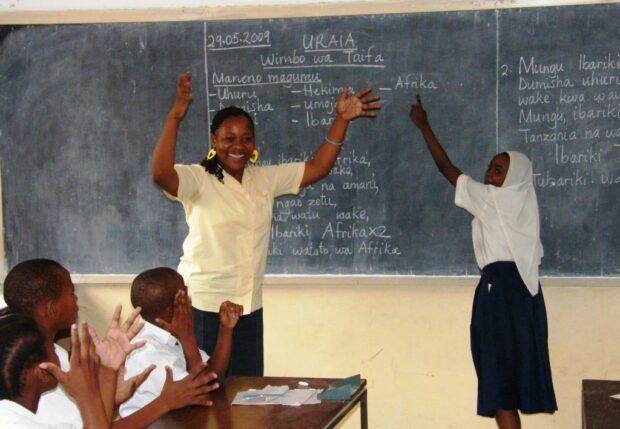Early reflections on embedding our Disability Framework
In October last year I was delighted to take on the role of DFID’s disability champion, making sure we are embedding disability in our policy and programming, and that central policy translates into practice on the ground. If you would like to follow us on this exciting journey, please sign up to our newsletter.
In an organisation like DFID, with a highly devolved structure, we often see pockets of good practice which are not translated and shared with other countries and contexts. The regional nature of my role as the Director responsible for Asia, the Caribbean and Overseas Territories, provides opportunities to connect our country office network to policy.
My dual role also ensures I am well placed to challenge teams on including a consideration of disability in their programmes. I will also be ensuring that DFID’s new central disability team supports colleagues with the tools and support they need to bring this agenda to life.
Our vision at DFID is to embed disability inclusion into all aspects of our work, as outlined in our Disability Framework, published in December last year. This framework outlines our ambition for the department in terms of values, standards and accountability on inclusion. It also sets out why we should be working on disability, what we’ll do, our plans to influence partners, and the step change we are taking externally in our actions to make UK aid more accessible to, and inclusive of, people with disabilities.
Ever since I first took on the role of disability champion, the issue of data availability and reliability has been a hot topic. To say the least, the data around disability is pretty poor, with global prevalence rates ranging from 2 to 20% depending on your source, although the World Bank and WHO estimate 15%. When countries underestimate disability prevalence, it is all too easy for decision makers to ignore the needs of people with disabilities. As we look ahead to a disability-inclusive post-2015 framework it is essential that we get better data and evidence on disability so governments are able to target interventions and monitor progress.
DFID’s Disability Data Conference last year further helped to draw attention to this issue with global partners, supporting consensus around best practice and next steps, and reinforcing it as a key strategic priority.
Throughout the department there are some fantastic examples of work being done, laying the foundations to build momentum around this agenda. Zambia’s social cash transfer programme is a great example of this. It provides grants of £12 per month to extremely poor and labour constrained households with a disabled member. This is part of the national scale up of the social cash transfer programme which has seen recipients triple to 180,000 in the last year.
Here in DFID we are scaling up our ambition around disability inclusion across all of the sectors we work in. In humanitarian contexts we are developing guidance on mental health and psychological support, as well as bringing together evidence on inclusive infrastructure. I am particularly excited about what we are doing to make our emergency responses more inclusive of people with disabilities, for example, through the training of specialists in Kenya and Pakistan as part of the DFID funded Disaster Emergency Preparedness Programme.
This year is crucial for building momentum and accelerating impact as we approach the deadline for the MDGs. Over the coming months the international community will be deciding what sort of development framework we want for the future. We must therefore ensure that as we work towards developing the next set of development goals, they are designed to finish the job, and that no one is left behind.
Sign up for email updates from this blog, and/or follow us on Twitter


2 comments
Comment by Abigail Watson posted on
I just wondered if you had any more information on how old people fit into this framework and perhaps any resources on DfID's role in helping old people
Comment by Fiach O'Broin-Molloy - DFID Disability Policy and Technical Specialist posted on
Abigail, thanks for your question. The framework sets out what steps DFID is taking to strengthen disability inclusion in our policies and programmes, and states that particular attention should be given to the needs of old people.
DFID also supports older people in a number of other ways. For example, we provide funding to HelpAge International through a 5 year Programme Partnership Arrangement and Age International through UK Aid Match. We also recently committed to include age and disability-disaggregated data as a requirement for humanitarian funding. In addition, DFID has appointed a member of staff to be responsible for ageing policy.